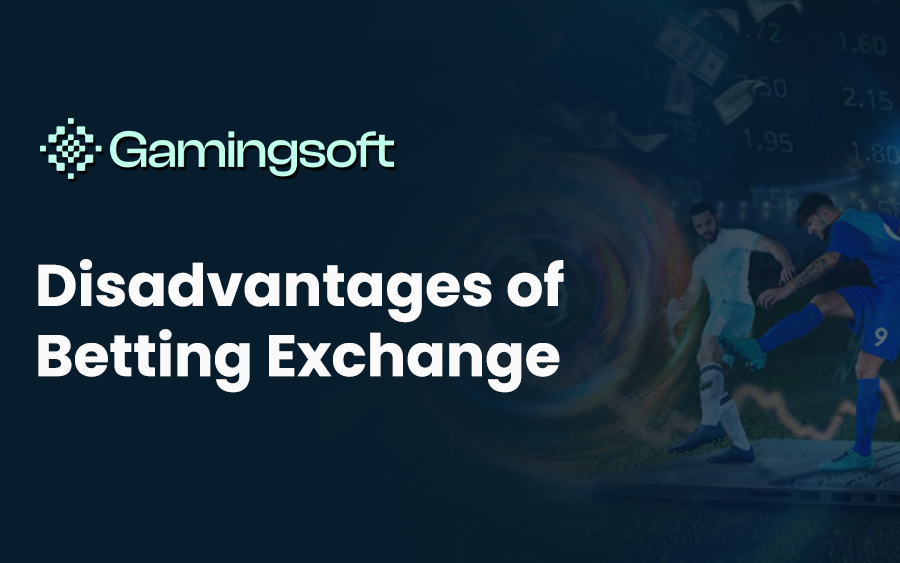Betting exchanges have grown in popularity over the past decade, with platforms like Betfair leading the charge. Unlike traditional bookmakers, exchanges allow players to bet against each other, often providing better odds and higher flexibility. While the model has its advantages—such as transparency, competitive pricing, and innovative trading opportunities—it also comes with significant drawbacks that both players and iGaming operators should carefully evaluate.
In this article, we’ll uncover the key disadvantages of betting exchanges, explain why they aren’t always the perfect solution, and explore what this means for new entrants and seasoned operators in the iGaming space.
What Is a Betting Exchange?
Before diving into the benefits, let’s quickly define the concept.
A betting exchange is a platform where players bet against each other rather than against a bookmaker. The exchange acts as a middleman, providing the platform and charging a small commission on winning bets, typically between 2–5%.
1. Liquidity Problems: The Achilles’ Heel of Exchanges
One of the biggest issues facing betting exchanges is liquidity—the amount of money available to match bets.
- For popular sports like football or horse racing, liquidity is often sufficient, and bets are matched almost instantly.
- But in less mainstream markets—such as esports, niche sports, or smaller leagues—bets can remain unmatched for long periods, making it frustrating for players.
According to research from the European Gaming and Betting Association (EGBA), liquidity fragmentation across multiple platforms remains a critical barrier to scaling betting exchanges. Without sufficient liquidity, even the best odds lose their appeal, leaving users dissatisfied.
For operators, this means exchanges often require a critical mass of active users before becoming profitable—something new startups may struggle to achieve.
2. Commission Fees Can Erode Profits
While traditional bookmakers build their margin directly into the odds, exchanges charge a commission on winnings, typically between 2% and 5%.
For casual bettors, this may seem small, but for high-frequency or high-stakes players, commissions add up quickly. For example:
- A bettor who wins $10,000 on an exchange with a 5% commission pays $500 in fees.
- On a traditional sportsbook offering slightly lower odds, the bettor might keep more of their profit despite the bookmaker’s margin.
This makes exchanges less appealing to some serious punters, who may view commissions as eating into their edge.
3. Steep Learning Curve for Beginners
Exchanges are not beginner-friendly. Unlike traditional sportsbooks where users simply select odds and stake, exchanges introduce concepts like:
- Backing vs. Laying
- Market liquidity
- Trading strategies (similar to financial markets)
While seasoned bettors may enjoy this level of control, newcomers often find it confusing and intimidating. Without proper education, many users abandon exchanges in favor of more straightforward bookmakers.
For operators, this means that customer acquisition for exchanges is harder and often requires significant investment in user education and onboarding.
4. Vulnerability to Sharp Players and Arbitrage
Betting exchanges attract highly skilled bettors, including professional traders and arbitrage players, who exploit price discrepancies between exchanges and sportsbooks.
While this is great for sharp bettors, it can lead to:
- Reduced profitability for casual players who cannot keep up
- Market distortions when pros dominate liquidity
- Increased operational challenges for operators trying to maintain balance
Traditional bookmakers can limit or ban sharp players, but exchanges cannot, since the system relies on peer-to-peer fairness. This means exchanges are more prone to professional dominance, making them less attractive to recreational users.
5. Technology and Integration Costs
Running a betting exchange requires sophisticated technology to handle:
- Real-time odds updates
- High-frequency trading
- Secure settlement of peer-to-peer bets
This makes integration more complex and costly than deploying a standard sportsbook. Without robust APIs and scalable infrastructure, operators risk poor user experiences and downtime, both of which can kill growth.
Pro Tip for Operators: Gamingsoft offers API Aggregator solution that seamlessly connect 8,000+ games, sportsbooks, and payment providers under a single integration—helping operators reduce overhead costs and accelerate time to market.
Conclusion
Betting exchanges bring innovation, transparency, and potentially better odds for savvy bettors—but they are not without serious challenges.
For operators, the decision to invest in a betting exchange must weigh these disadvantages against the potential upside. Often, a hybrid approach—combining a sportsbook with select exchange features—can provide the best of both worlds.
At Gamingsoft, we help operators navigate these complexities with White Label and API Aggregator solutions, ensuring you have the tools, content, and technology to thrive in today’s competitive iGaming landscape. Ready to explore the future of iGaming? Visit www.gamingsoft.com or contact [email protected] to get started.
About Gamingsoft
Gamingsoft is a leading provider of online casino solutions, offering a comprehensive suite of services, including a white-label solution, API integration, payment solutions, game development, and more, to iGaming operators worldwide. With over years of experience, Gamingsoft has earned a reputation for delivering innovative and reliable solutions, helping clients succeed in the competitive iGaming industry.





